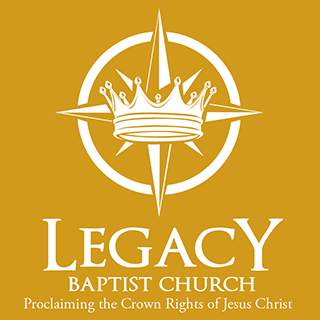Rejection is difficult in its own right. But to be rejected by God is even more devastating than being rejected by man. Man’s rejection, we might surmise, is faulty – we can always pass it off as bad judgment on their part. But not so with God; His judgment is perfect; His rejection is painful; His displeasure is most difficult.
Why did God reject Cain’s sacrifice? Cain did not offer his sacrifice by faith. Genesis 4 gives the account of Cain’s rejected sacrifice and subsequent murder of his brother, but Hebrews 11.4 tells us specifically that Abel’s sacrifice was accepted because it was given by faith; this is the contrast to Cain’s sacrifice.
Faith expresses itself in obedient worship. While Hebrews 11.4 tells us that Abel’s faith caused him to offer an acceptable sacrifice, we still need to understand how Cain’s sacrifice was faithless, lest we be likewise found guilty.
The Way We Worship Matters
Contrary to the belief of some, God not only dictates what is to be sacrificed, but how it is to be sacrificed. By “how,” I am including all the other particulars like, when, where, why, and who. And, thus, step number one is that God decides all aspects of appropriate worship. We are not free to invent our own schemes of worship.
Just ask Nadab and Abihu
10 Now Nadab and Abihu, the sons of Aaron, took their respective firepans, and after putting fire in them, placed incense on it and offered strange fire before the Lord, which He had not commanded them. 2 And fire came out from the presence of the Lord and consumed them, and they died before the Lord.
Leviticus 10.1-2
The Regulative Principle
The Regulative Principle states that whatever is not directed in Scripture is forbidden; the Normative Principle teaches that whatever is not expressly forbidden is permissible. I think Nadab and Abihu would recommend the Regulative principle. For an analysis between the two, go here.
The account of Cain and Abel’s sacrifice (Genesis 4.1-3) lets us know that sacrifice (an act of worship) was established early in creation. At the heart of the creation is a creator interacting with His creation. The relationship was broken, and God promises to provide for man’s redemption (Genesis 3). The rest of the Bible would be the play out of this promise. And from the earliest beginnings we see the role that faith would play. God’s people must live by faith (Habakkuk 2.4). That faith would express itself in worship – a worship that was acceptable to God.
You cannot put an inappropriate sacrifice on the altar
This is the point of the book of Hebrews: the only acceptable sacrifice has come, and it would be inappropriate to go back to sacrificing animals. Cain put an inappropriate sacrifice on the altar. Abel, by faith, put an appropriate and acceptable sacrifice on the altar. The writer of Hebrews was calling his audience to press on into the New Covenant which only has one appropriate sacrifice – Jesus. We can no longer worship God by sacrificing anything less than what was already sacrificed on our behalf.
Since Jesus has already been sacrificed, and that only happens once (Hebrews 10), our sacrifice is that of praise to God for Jesus (Hebrews 13). To obey and worship God now, is to acknowledge with God that in Christ the perfect sacrifice for sins has been made!
